Motovun - Filmfestival 2007
Film Festival von Motovun

vom 23. bis 27. Juli 2007
Casa de Areia
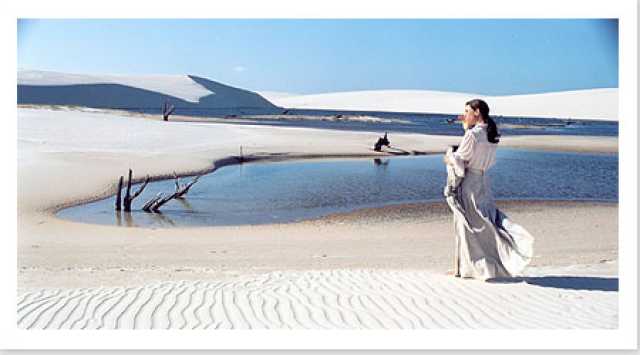 (The House of Sand), Directed by: Andrucha Waddington, Brasilia - 2005
(The House of Sand), Directed by: Andrucha Waddington, Brasilia - 2005Production: Conspiração Filmes - Director: Andrucha Waddington - Scenario: Elena Soarez - Director of Photography: João Baron - Carlo Bartolini - Editor: Sérgio Mekler - Cast: Fernanda Montenegro - Fernanda Torres - Ruy Guerra - Seu Jorge - Stênio Garcia -
Remarks and general Information: Andrucha Waddington has assembled some of the greatest talent in Brazil to relate this 19th-century saga of frustration, perseverance and redemption. Two of the country's finest actresses, Fernanda Montenegro and her real-life daughter Fernanda Torres play a mother (Aurea) and daughter (Maria) abandoned in the wilds of northeast Brazil. Aurea's demented husband Vasco (famed director Ruy Guerra doing a turn in front of the camera) drags his family to the Maranh√£o region, a stunningly beautiful desert of shifting sand dunes and vast horizons, under the magnificent delusion that he can grow crops there. But Vasco dies soon after arriving. Thinking they are now free, the women attempt to return home. When an expedition of English scientists passes through and American warplanes fly overhead, they seem like strange emissaries from a distant world. Although thwarted in their original mission, the women find their lives punctuated by explosions of love, passion and fulfillment. In the end, the three generations of women - all played by Montenegro and Torres - have experienced a range of emotions as vast and beautiful as the desert itself. (Filmfest Motovun)
Daratt
 (Dry Season), Directed by: Mahamet-Saleh Haroun, France, Belgium, Austria, TD - 2006
(Dry Season), Directed by: Mahamet-Saleh Haroun, France, Belgium, Austria, TD - 2006Production: Chinguitty Films - Producer: Mahamet-Saleh Haroun - Director: Mahamet-Saleh Haroun - Scenario: Mahamet-Saleh Haroun - Director of Photography: Abraham Haile Biru - Editor: Marie-H√©l√®ne Dozo - Cast: Ali Bacha Barka√Į - Youssouf Djaoro - Djibril Ibrahim - Aziza Hisseine - Khayar Oumar Defallah - Fatim√© Hadje -
Remarks and general Information: Age 15, Atim goes off to find the man who killed his father. A long time ago, two months before he was born… He arrives in N’djamena, the capital of Chad, and starts his search for Abdallah Nassara, the assassin… Nassara, former war criminal, has long since laid down his weapons: he is in his sixties, and is both respected and respectable. He is the owner of a small bakery… Atim finds Nassara. He even manages to be hired as an apprentice at the bakery… Nassara, who does not know anything about Atim, takes him under hi swing and teaches him the art of how to make bread… A strange relationship develops between the two men, each attracted to the other: Atim finds in this man the paternal figure he has always lacked; and Nassara discovers a potential son in the adolescent. He even offers to adopt him… But can one escape one’s destiny? (Motovun Filmfest)
Day Night Day Night
 Directed by: Julia Loktev, USA - 2006
Directed by: Julia Loktev, USA - 2006Production: IFC Films - First Take - Producer: Julia Loktev - Jessica Levin - Melanie Judd - Director: Julia Loktev - Scenario: Julia Loktev - Director of Photography: Beno√ģt Debie - Editor: Michael Taylor - Julia Loktev - Cast: Gareth Saxe - Nyambi Nyambi - Tschi Hun Kim - Annemarie Lawless - Frank Dattolo - Josh Phillip Weinstein - Luisa Williams -
Remarks and general Information: A 19-year-old girl prepares to become a suicide bomber in Times Square. She speaks with no accent; it's impossible to pinpoint her ethnicity. We never learn why she made her decision - she has made it already. We don't know whom she represents, what she believes in - we only know she believes it absolutely. The film strips the story down to its existential core. It focuses on microscopic movements, the smallest gestures, an economy of banal details. Inspired in part by a story in a Russian newspaper and playing off a history of Joan of Arc films, the film transpires on the girl's face. The minimalism of the face is confronted with the visual and aural noise of the city. Faith comes face-to-face with the possibility of failure. (Motovun Filmfest)
Efter brylluppet
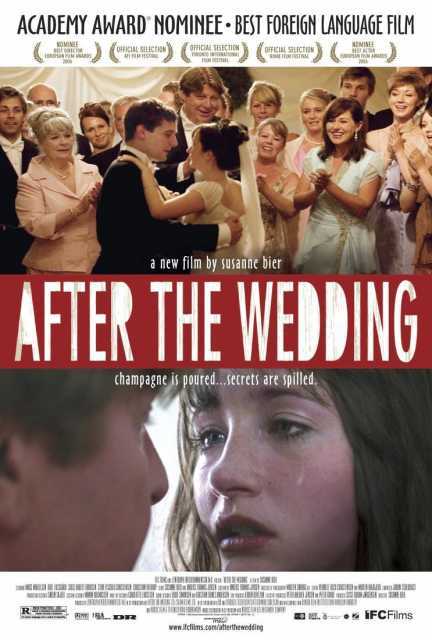 (After the wedding), Directed by: Susanne Bier, Sweden, Danmark - 2006
(After the wedding), Directed by: Susanne Bier, Sweden, Danmark - 2006Production: Zentropa Entertainments - Producer: Sisse Graum J√łrgensen - Director: Susanne Bier - Scenario: Anders Thomas Jensen - Susanne Bier - Director of Photography: Morten S√łborg - Composer: Johann S√∂derqvist - Cast: Rolf Lassgard - Mads Mikkelsen - Sidse Babett Knudsen - Stine Fischer Christensen - Christian Tafdrup - Frederik Gullits Ernst - Kristian Gullits Ernst -
Synopsis in German: Der D√§ne Jacob (Mads Mikkelsen) arbeitet als Vorsteher eines Waisenhauses in Indien. Als das Waisenhaus von der Schlie√üung bedroht ist, erh√§lt Jacob von J√łrgen (Rolf Lassg√•rd), einem d√§nischen Gesch√§ftsmann, ein ungew√∂hnliches Angebot. Er bietet dem Waisenhaus eine gro√üz√ľgige Spende an, doch diese ist an eine seltsame Bedingung gekn√ľpft: Jacob muss selbst nach D√§nemark reisen und den Vertrag pers√∂nlich unterzeichnen. Zuf√§llig f√§llt Jacobs Ankunft in D√§nemark mit der Hochzeit von J√łrgens Tochter Anna (Stine Fischer Christensen) zusammen und J√łrgen bittet Jacob, an der Feier teilzunehmen. Auf der Hochzeit stellt Jacob fest, dass die Mutter der Braut und Ehefrau seines Wohlt√§ters, seine Jugendliebe Helene (Sidse Babett Knudsen) ist. Als Jacob h√∂rt, dass J√łrgen gar nicht Annas leiblicher Vater ist, steigt eine unfassbare Ahnung in ihm auf. Tief verletzt und w√ľtend will Jacob eigentlich so schnell wie m√∂glich wieder nach Indien zur√ľck, doch J√łrgen hat andere Pl√§ne f√ľr ihn... (Pressetext)
Reviews in German: ¬ęIn einer der √§rmsten Regionen Indiens arbeitet Jacob als Leiter eines Waisenhauses, das aus Geldmangel von der Schlie√üung bedroht ist. J√łrgen, ein d√§nischer Gesch√§ftsmann, lockt mit einem gro√üz√ľgigen Spendenangebot. Er stellt allerdings die Bedingung, dass Jacob den Vertrag in seiner alten Heimat unterzeichnen muss, die er aus pers√∂nlichen Gr√ľnden seit 20 Jahren gemieden hat. Der Waisenhausleiter kann das Anbot nicht ausschlagen. Als sich die Vertragsunterzeichnung in D√§nemark verz√∂gert, l√§dt der M√§zen Jacob zur Hochzeit seiner Tochter Anna ein. Deren Mutter Helene entpuppt sich als Jacobs Jugendliebe, die den einstigen S√§ufer, Sch√ľrzenj√§ger und Junkie vor 20 Jahren in Indien verlassen hatte. Dass Helene damals von ihm schwanger war, wusste Jacob nicht. Aber w√§hrend der Hochzeitsfeierlichkeiten ahnt er, dass Anna seine Tochter ist. Doch dies sind nicht die einzigen schockierenden Ereignisse, die das Leben aller Beteiligten ver√§ndern und Jacob vor eine schwere Entscheidung stellen. Nach Open Hearts (2002) und Brothers ‚Äď Zwischen Br√ľdern (2004) erz√§hlt Susanne Bier erneut von der abrupten Ver√§nderung eines Lebenswegs, von der Liebe und davon, wie ein Mensch ohne eigenes Wissen schuldig werden kann. Die puristischen Regeln der von ihrem Landsmann Lars von Trier begr√ľndeten Dogma-Schule ‚Äď keine Musikuntermalung oder zus√§tzliches Licht ‚Äď, nach denen Open Hearts gedreht wurde, hat sie weit hinter sich gelassen. Geblieben ist die St√§rke des Geschichtenerz√§hlens, der Blick hinter die Fassade, die Lust an der Br√ľchigkeit von Beziehungen: Lebensl√ľgen und Verrat lauern unter der glatten Oberfl√§che und wirbeln das scheinbar geordnete soziale und famili√§re Gef√ľge durcheinander. Was anfangs noch wie eine Studie sozialer Gegens√§tze wirkt ‚Äď Armut und Bildungsnotstand in Indien, Luxus und Reichtum in D√§nemark ‚Äď entwickelt sich zum aufw√ľhlenden Familiendrama und zur Konfrontation des Individuums mit existenziellen Fragen. Denn der sozial engagierte Jacob muss sich seiner verdr√§ngten Vergangenheit stellen. Im Gegensatz zu damals √ľbernimmt er nun Verantwortung, nicht nur f√ľr die indischen Waisenkinder, sondern auch f√ľr die Menschen zu Hause in D√§nemark, denen er sich erneut anzun√§hern versucht. Wie schon in Biers fr√ľheren Filmen sind es wieder die Kinder, die in ihrer Naivit√§t den Gang der Dinge ersp√ľren und der Wirklichkeit ins Auge sehen. Nach der Hochzeit √ľberzeugt mit eindringlichen Darstellern/innen und Figuren, die nicht auf den ersten Blick sympathisch sind, sondern die Zuneigung der Zuschauenden sukzessive erobern. Susanne Biers Film erz√§hlt von den Schwierigkeiten, zu sich selbst zu finden, vom Umgang mit dem Tod und der Notwendigkeit, auch unbequeme Entscheidungen zu treffen. Zugleich macht er Hoffnung, die eigenen D√§monen zu besiegen.¬Ľ (Margret K√∂hler, kinofenster.de) "After the Wedding ist ein Drama √ľber ersch√ľtternde Enth√ľllungen und schwer wiegende Entscheidungen. Der Film h√§tte leicht unertr√§glich r√ľhrselig und klischeehaft werden k√∂nnen, doch dank eines straffen Drehbuchs, eleganter Inszenierung und exzellenter Darsteller gelingt es dem neuen Film der d√§nischen Erfolgsregisseurin Susanne Bier, sowohl gef√ľhlsbetont als auch einnehmend zu sein. (...)" ( Variety) ¬ę(...) Heftige, emotionale Bombe¬Ľ (tele 12/2007)
Remarks and general Information: Acclaimed director Susanne Bier returns with her most powerful film yet, the Academy Award nominee for Best Foreign Language Film, 'After the Wedding'. Far from home, Jacob (‚ÄėCasino Royale‚Äô villain, Mads Mikkelsen), runs a struggling orphanage in one India‚Äôs poorest regions. Desperate to save the orphanage from closure, he returns to Denmark to meet Jorgen (Rolf Lassgard) a wealthy businessman and potential benefactor. Jorgen offers Jacob a seemingly innocent invitation to attend his daughter‚Äôs wedding. What appears to be nothing more than a friendly gesture sets in motion an increasingly devastating series of surprises, revelations, and confessions that will forever change their lives. Sweeping, yet entirely intimate, 'After the Wedding' is a shattering portrait of a family struggling with the fragility of life and the search for connection, healing, and forgiveness (Motovun Filmfest)
Fascisti su Marte
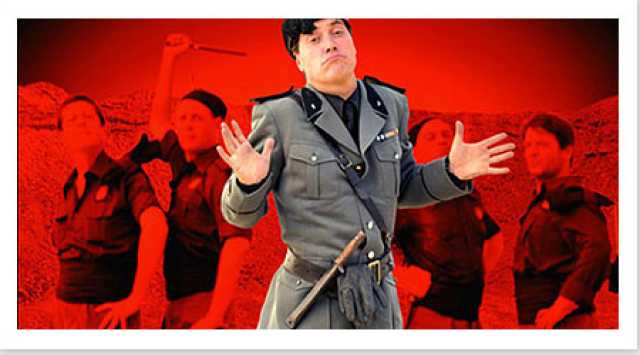 Directed by: Igor Skofic, Italy - 2006
Directed by: Igor Skofic, Italy - 2006Producer: Corrado Guzzanti - Domenico Procacci - Valerio Terenzio - Director: Corrado Guzzanti - Igor Skofic - Scenario: Corrado Guzzanti - Director of Photography: Igor Skofic - Editor: Cristiano Travaglioli - Cast: Corrado Guzzanti - Simona Banchi - Andrea Blarzino - Irene Ferri - Caterina Guzzanti - Marco Marzocca -
Remarks and general Information: The film is set in 1939 when Italy was ruled by the Fascist dictator Benito Mussolini. It tells the story of five Fascists, led by Hierarch Barbagli who undertake the conquest of Mars, the 'red, Communist and treacherous planet.' At this time the Fascists and the Communists were enemies. While the main European powers are concentrating on who controls the continent, plucky Italy has set its sight on higher goals. The five Fascists disembark on Mars and try to conquer it, but they find many difficulties. There is no food or water, but Mussolini's bronze sculpture, which accompanies them, is sustenance enough on this terrible trip to the red planet. The Fascist faith is the only consolation for the five characters. The film is not simply a work of satirical humor, it is also deeply critical of the rhetoric of Fascist Italy and the hypocritical behavior of the Catholic church during this dark period. (Motovun Filmfest)
Hallam Foe
 Directed by: David Mackenzie, Great Britain - 2006
Directed by: David Mackenzie, Great Britain - 2006Production: Film Four Productions - Producer: Gillian Berrie - Director: David Mackenzie - Scenario: David Mackenzie - Ed Whitmore - Director of Photography: Giles Nuttgens - Editor: Colin Monie - Cast: Jamie Bell - Sophia Myles - Ciarin√°n Hinds - Jamie Sives - Maurice Roeves - Ewen Bremner - Claire Forlani -
Remarks and general Information: Hallam is almost over the sudden death of his mother when he begins to suspect that his beautiful step mother may have had a hand in her death, and it doesn't help that Hallam fancies her rotten. After a confrontation with his step mum, Hallam escapes to Edinburgh. Out of money and out of friends, he finds his tree-top skills well suited to the rooftops of the city, where he lives ferally, attempting to avoid the perils of the streets below and becoming obsessed with a gorgeous girl who happens to look just like his mother. (Motovun Filmfest)
Heile Welt
 Directed by: Jakob M. Erwa, Austria - 2006
Directed by: Jakob M. Erwa, Austria - 2006Director: Jakob M. Erwa - Scenario: Jakob M. Erwa - Director of Photography: Jakob M. Erwa - Editor: Wolfgang Weigl - Cast: Michael Sauseng - Simon Möstl - Angelika Schneider - Zacharias Pichler - Adrian Hilberger - Thomas Proksch -
Remarks and general Information: Liberty and loneliness are close together. As well as pleasure and sadness, outcry and speechlessness, violence and tenderness or aggression and helplessness. A relentlessly and honest insight in four, tight enmeshed, human destinies. Without embellishment and nearly documentarily we watch the characters through their day - their night and the ‚Äėday after‚Äô. (Motovun Filmfest)
Hezké chvilky bez záruky
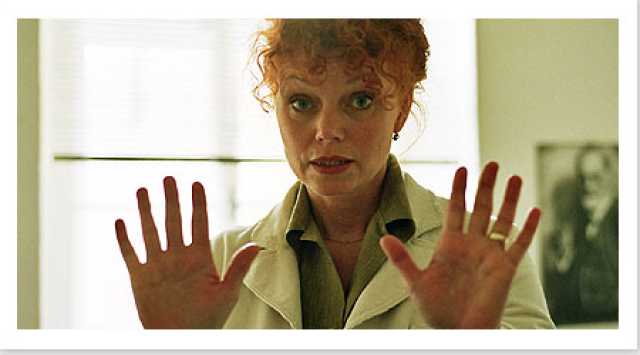 (Pleasant Moments), Directed by: Vera Chytilov√°, CZ - 2006
(Pleasant Moments), Directed by: Vera Chytilová, CZ - 2006Production: Negativ s.r.o. - Producer: Katerina Cerná - Jaroslav Kucera - Ivan Hubac - Director: Vera Chytilová - Scenario: Vera Chytilová - Editor: Martin Strba - Jirí Brozek - Cast: Igor Bares - Jana Janeková - Jana Krausová - Boleslav Polívka - Zuzana Vejvodová -
Remarks and general Information: The film should function as a kaleidoscope of the assorted comic, tragic and banal slivers of human existence. The authors want to render the entire range of modern dilemmas so that, in their cumulative meshing, the humorous, even terribly inconsequential existence of most of us is surpassed. In this latest film from director Věra Chytilov√°, from out of the six main roles there should appear many different characters represented by the patients of psychologist Hana. Through their visits to the psychologist‚Äôs clinic they will tell us their own problems and the burdens of their lives. Chytilov√° used famous Czech actors in these roles, mainly those who have appeared in her previous films. (Motovun Filmfest)
Immer nie am Meer
 Directed by: Antonin Svoboda, Austria - 2007
Directed by: Antonin Svoboda, Austria - 2007Production: Coop 99 Filmproduktion - Director: Antonin Svoboda - Scenario: Antonin Svoboda - Christoph Grissemann - Dirk Stermann - Heinz Strunk - Director of Photography: Martin Gschlacht - Editor: Oliver Neumann - Cast: Christoph Grissemann - Dirk Stermann - Heinz Strunk -
Remarks and general Information: Two men are on their way to the opening of a wine store. One is unhappily married to the owner; the other only wants to get drunk. In the meantime, a handicapped comedian with an accordion tries to cheer up a reception somewhere. That isn’t an easy task either. The accordionist leaves. When he tries to chat up a jogging woman, his car breaks down on the verge. The other two men pick him up in the dark. They start talking and are only just able to avoid running over the jogging beauty. The car runs down a wooded hill and gets stuck. The locks no longer work, the doors and windows won’t open. The three men are rats in a trap. In the comedy that then develops, the three men veer between mutual irritation, comradeship and dependence. Unwelcome intimacies are exchanged, secrets are given away. Comic dialogues follow each other around in an indefinable period of time in which they are manipulated in an incomprehensible way by someone unknown. Their vicissitudes are not wholly dependent on fate: a little boy orchestrates the steps in their story through a game on his computer. (Filmfest Motovun)
In 3 Tagen bist du tot
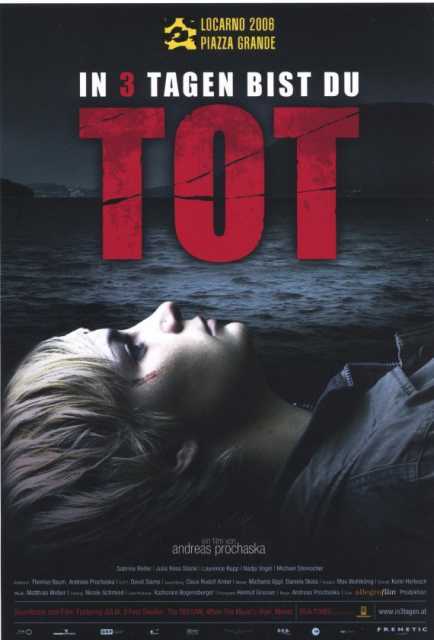 Directed by: Andreas Prochaska, Austria - 2006
Directed by: Andreas Prochaska, Austria - 2006Production: Allegro-Filmproduktionsges.m.b.H. - Producer: Helmut Grasser - Director: Andreas Prochaska - Scenario: Thomas Baum - Andreas Prochaska - Director of Photography: David Slama - Editor: Katrin Hartusch - Cast: Sabrina Reiter Nina - Julia Rosa Stöckl Mona - Laurence Rupp Martin - Nadja Vogel Alex - Michael Steinocher Clemens - Julian Sharp Patrick - Andreas Kiendl Kogler - Andreas Prochaska -
Synopsis in German: Nach der Schule f√§ngt der Ernst des Lebens an. Allerdings f√ľr manche mit weit mehr Wucht als erwartet. Ein idyllischer Ort an einem √∂sterreicischen See. Vorsaison. Nina, Martin, Mona, Alex und Clemes waren schon als Kindereine Clique. heute haben sie die Matura bestanden. Alle f√ľnf. Zeit zum Feiern.... Nina ist die erste, die die SMS mit der seltsamen Botschaft bekommt. "In 3 Tagen bist du tot." Zuerst glaubt sie an einen schlechten Scherz. Erst als ihr Freund Martin am H√∂hepunkt der feuchtfr√∂hlichen Maturafeier spurlos verschwindet, geht sie zur Polizei. Der Beamte r√§t ihr, eine Nacht dar√ľber zu schlafen, der Martin wird schon wieder auftauchen. Doch am n√§chsten Morgen ziehen sie seine Leiche aus dem See. Die Jugendlichen stehen unter Schock. Alle aus der Clique haben die SMS mit der Morddrohung bekommen. Mittlerweile glaubt keiner mehr an einen makabren Witz. Angst und Entsetzen machen sich breit. Ein weiteres Mitglied der Clique wird bestialisch umgebracht und l√§sst die unb√§ndige Wut erahnen, die im Killer brodeln muss. Wo liegt das Motiv f√ľr die Morde ? Es muss irgend ein Geheimnis geben, das die f√ľnf Jugendlichen untrennbar miteinander verbunden hat. Ein dunkler Flecken in der Vergangenheit, der die Clique ins Fadenkreuz des Psychopathen stellt. Nina ist die erste, die die Fratze des M√∂rders sieht, sie kennt dieses Gesicht. Nur woher?.. (Pressetext)
Remarks and general Information: ¬ęAlpiner Horror in den √∂sterreichischen Bergen. Eine Gruppe frischgebackener Maturanden verbringt ein paar Tage an einem Bergsee. Alle Teilnehmenden der Exkursion erhalten ein makaberes SMS: ¬ęIn 3 Tagen bist du tot...¬Ľ Was zuerst als √ľbler Scherz interpretiert wird, wandelt sich zum bitteren Ernst, als einer nach dem anderen aus der Gruppe verschwindet...¬Ľ (Locarno 2006) ¬ęA horror thriller. Nina and her group of friends receive a threatening message saying that they will all be dead in three days time. They think it is a joke, but then three days later Nina's boyfriend is found dead in a lake. Another member of the group is also killed and the rest live in fear of being next, with no knowledge of who is after them or why.¬Ľ (Motovun Filmfest 2007)
Jak to sie robi
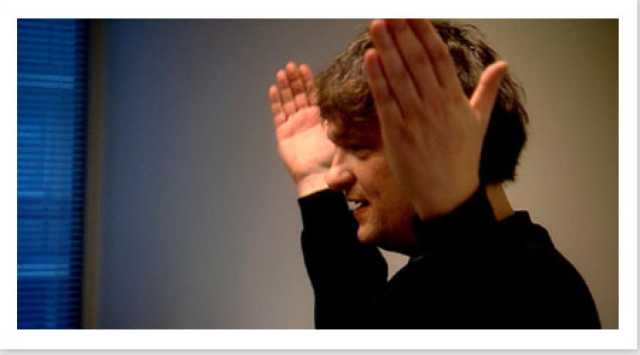 (How It's Done), Directed by: Marcel Lozinski, Poland - 2006
(How It's Done), Directed by: Marcel Lozinski, Poland - 2006Production: Studio Filmowe Kalejdoskop - Producer: Zbigniew Domagalski - Director: Marcel Lozinski - Scenario: Marcel Lozinski - Director of Photography: Andrzej Adamczak - Jacek Petrycki - Editor: Katarzyna Maciejko-Kowalczyk - Cast: Piotr Tymochowicz - Jacek Hugo-Bader - Marek Dyduch - Andrzej Lepper - Leszek Mille - Józef Oleksy -
Remarks and general Information: Piotr Tymochowicz, media advisor to some of Poland's top politicians, claims that anyone can be molded into a charismatic leader. To prove it, he's looking for a greenhorn who can be turned into a candidate. A call is put out for would-be participants, and hundreds apply. A small group is selected and undergoes training. Polish master Marcel Lozinksi followed Tymochowicz and his project for three years, and this beautifully shot and edited work paints a compelling portrait of cynical (and quite familiar) demagogy and populism in action. Taken through exercises in all aspects of being a politician, from body language to handling media scrums, a candidate soon emerges. The relative ease with which the political rookie merges into active political life is quite shocking, as is his completely malleable ideology. ‚ÄėIt's a revolution in communications,‚Äô claims Tymochowicz. Look who's winning. (Filmfest Motovun)
Karneval
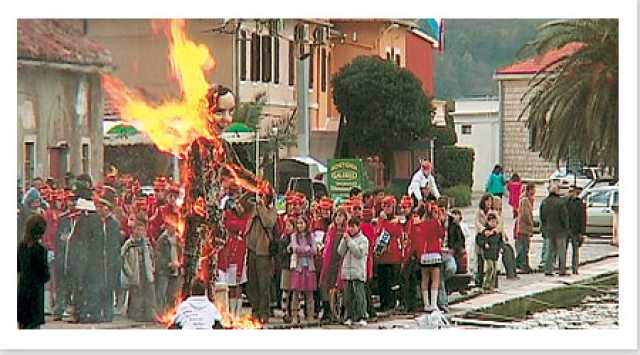 Directed by: Alen Drljevic, BA - 2006
Directed by: Alen Drljevic, BA - 2006Production: Mediacentar Sarajevo - Producer: Boro Kontic - Director: Alen Drljevic - Scenario: Seki Radoncic - Alen Drljevic - Director of Photography: Mustafa Mustafic - Composer: Adnan Zilic - Editor: Almir Kenovic -
Remarks and general Information: Carneval' is a shocking story about the destiny of Bosnian refugees who fled from the war to find refuge in the nearby republic of Montenegro. Although he didn't find the refuge they sought, their history inspired journalist ҆eki Radončić's research. He investigated their story for a long time and turned it into a book 'Fatal Freedom', which was later adapted by Radončić himself and Alen Drljević into a film. It was shot from January through April 2006 in Sarajevo, Tuzla, Foča, IlijaŇ°, Visoko and in Croatia, Montenegro and Sweden. The shocking interviews with the surviving members of the families seem to be one of our most important documents about war. (Filmfest Motovun)
Kráska v nesnázích
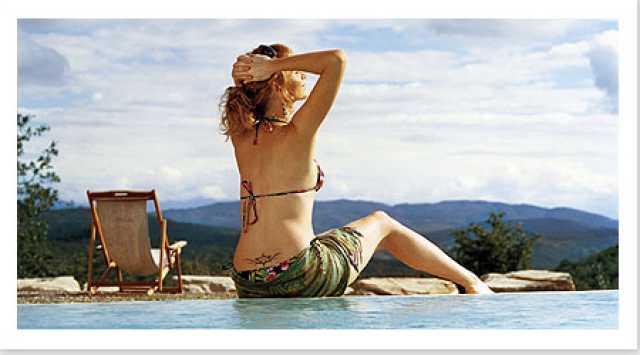 (Beauty in Trouble), Directed by: Jan Hrebejk, CZ - 2006
(Beauty in Trouble), Directed by: Jan Hrebejk, CZ - 2006Director: Jan Hrebejk - Scenario: Petr Jarchovsk√Ĺ - Director of Photography: Jan Mal√≠r - Cast: Anna Geislerov√° - Roman Lukn√°r - Jana Brejchov√° - Jir√≠ Schmitzer - Emili V√°s√°ryov√° -
Remarks and general Information: The Robert Graves poem by the same name inspired Jan Hřebejk and Petr Jarchovsk√Ĺ to tell the romantic story of a young woman (Aňa Geislerov√°) dealing with dilemma of loving two men at once (Roman Lukn√°r and Josef Abrh√°m); a dilemma between sexual dependence and assuring a future for herself and her children (Adam MiŇ°√≠k and Michaela Mrv√≠kov√°); a dilemma in her relationship to her mother (Jana Brejchov√°) and step-father (Jiř√≠ Schmitzer) and with her mother-in-law (Em√≠lia V√°Ň°√°ryov√°). ‚ÄėBeauty in Trouble‚Äô is full of unexpected and twists, humor, a paradoxical ending and amazing performances by the actors. (Motovun Filmfest)
El Laberinto del Fauno
 (Pan's Labyrinth), Directed by: Guillermo del Toro, Mexico - 2006
(Pan's Labyrinth), Directed by: Guillermo del Toro, Mexico - 2006Production: Warner Bros. Pictures, Inc. - Tequila Gang - Producer: Alvaro Augustin - Frida Torresblanco - Bertha Navarro - Guillermo del Toro - Alfonso Cuar√≥n - Director: Guillermo del Toro - Scenario: Guillermo del Toro - Director of Photography: Guillermo Navarro - Composer: Javier Navarrete - Editor: Bernat Vilaplana - Cast: Maribel Verd√ļ - Ariadna Gil Carmen - Sergi Lop√©z Captain Vidal - Doug Jones Pan - Ivana Baquero Ofelia -
Reviews in German: ¬ęFantasydrama - In Francos Spanien fl√ľchtet sich ein M√§dchen vor ihrem Stiefvater in eine Fantasiewelt, durch die sie ein alter Faun f√ľhrt. Der grossartige Film erhielt verdientermassen drei Oscars.¬Ľ (tele 12/2007)
Remarks and general Information: 'Pan's Labyrinth' is a thrilling, violent fairy tale set in post-Civil War Spain. Ivana Baquero stars as Ofelia, a young girl who moves with her mother, Carmen, into the home of Captain Vidal, in an abandoned mill in the middle of dark, dangerous woods. Vidal is leading his team of soldiers against resistance fighters - and he will do whatever is necessary to kill every last one of them. As Vidal bosses around the pregnant Carmen, a flying creature leads Ofelia through a garden labyrinth and into an underground cave ruled by Pan who believes that Ofelia might be the lost princess of this strange yet magical place. To prove she is royalty, Ofelia must complete three tasks, each more difficult and terrifying than the previous one. Meanwhile, Vidal is becoming more and more paranoid, torturing and murdering seemingly at will. Del Toro creates a marvelous battle between good and evil, between heroes and villains, in both the real world aboveground and the mystical land below. (Filmfest Motovun)
Mama i tata
 (Mum and Dad), Directed by: Faruk Lončarević, BA - 2006
(Mum and Dad), Directed by: Faruk Lončarević, BA - 2006Producer: Faruk Lončarević - Director: Faruk Lončarević - Scenario: Faruk Lončarević - Editor: Faruk Lončarević - Cast: Sabina Bambur - Zagorka Borota - Vjekoslav Ramljak -
Remarks and general Information: The year is two thousand and something. An elderly couple live alone in a flat in Sarajevo, with their own rituals: drinking coffee, playing cards, watching TV. The husband (Dad) has had a stroke and although he is still physically strong, he has difficulties in communication. The wife (Mum) is a lively elderly lady who is, after 50 years, now using the husband’s disability to change the things around in this old-fashioned, patriarchal family. Dad must not allow that and he opposes it in the only way he can, with physical force. (Filmfest Motovun)
Mio fratello è figlio unico
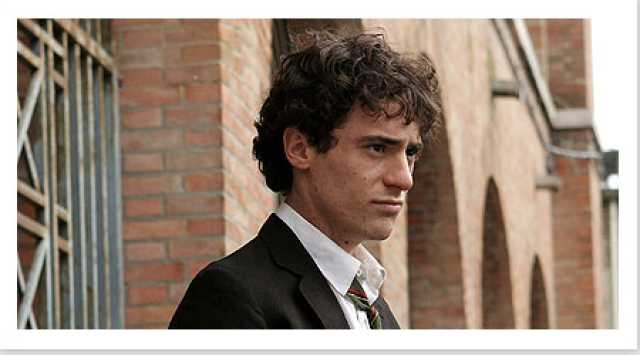 (My Brother Is an Only Child), Directed by: Daniele Luchetti, Italy, France - 2007
(My Brother Is an Only Child), Directed by: Daniele Luchetti, Italy, France - 2007Production: Babe Film - Cattleya - Producer: Riccardo Tozzi - Giovanni Stabilini - Marco Chimenz - Director: Daniele Luchetti - Scenario: Daniele Luchetti - Stefano Rulli - Sandro Petraglia - Antonio Pennacchi - Director of Photography: Claudio Collepiccolo - Composer: Franco Piersanti - Editor: Mirco Garrone - Cast: Ascanio Celestini - Massimo Popolizio - Anna Bonaiuto - Luca Zingaretti - Angela Finocchiaro - Riccardo Scamarcio - Elio Germano -
Remarks and general Information: Accio and Manrico are two brothers forced to confront their choices, indeed their own lives, in suburban Italy during the '60's and '70's. Their paths are as separate as can be imagined over the course of a series of wild and passionate adventures that will test the brothers' relationship - though tempestuous and unstable, always marked by their mutual affection and unity - to its limit. (Filmfest Motovun)
Ostrov
 (Island), Directed by: Pavel Semjonovich Lungin, Russia - 2006
(Island), Directed by: Pavel Semjonovich Lungin, Russia - 2006Producer: Pavel Semjonovich Lungin - Sergej Shumakov - Olga Vasilijeva - Director: Pavel Semjonovich Lungin - Scenario: Dmitrij Sobolev - Director of Photography: Andrej Zhegalov - Composer: Vladimir Martinov - Editor: Albina Antipenko - Cast: Pjotr Mamonov - Viktor Suhorukov - Dmitrij Djuzhev -
Remarks and general Information: During World War 2, the sailor Anatoly and captain, Tikhon are captured by the Nazis when they board their barge and tugboat which is carrying a shipment of coal. The Nazi officer leading the raid offers Anatoly the choice to shoot Tikhon and stay alive which Anatoly reluctantly takes, and Tikhon falls overboard. The Nazis blow up the ship but Anatoly is found by monks on the shore the next morning. He survives and becomes a stoker at the monastery, but is perpetually overcome with guilt. Thirty years pass... Anatoly now has the gift of clairvoyance and healing. People come to see Anatoly for cures and guidance. But he remains in a perpetual state of repentance. A prominent admiral arrives to see Anatoly with his daughter. The daughter is possessed by demons but Anatoly exorcises them. The admiral turns out to be Tikhon. It is revealed that Anatoly only wounded him during the war. Tikhon forgives Anatoly.
Pop Ćira i pop Spira
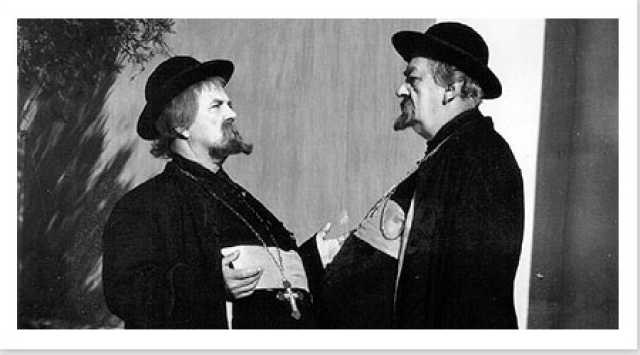 (PriestsCira and Spira), Directed by: Sofija Soja Jovanović, Yugoslavia - 1957
(PriestsCira and Spira), Directed by: Sofija Soja Jovanović, Yugoslavia - 1957Production: Avala-Film, Beograd - Director: Sofija Soja Jovanović - Scenario: Sofija Soja Jovanović - Director of Photography: Nenad Jovicic - Cast: Dubravka Peric - Jovan Gec - Ljubinka Bobic - Milan Ajvaz - Nevenka Mikulic - Renata Ulmanski -
Synopsis in German: Two priestly families, the village elite, live undisturbed in mutual friendship, until the arrival of a young teacher creates a divide: he is a good catch, but can marry a daughter of only one priest, not of both of them. (Motovun Filmfest)
Sehnsucht
 Directed by: Valeska Grisebach, Germany - 2005
Directed by: Valeska Grisebach, Germany - 2005Production: Peter Rommel Productions - Zweites Deutsches Fernsehen (ZDF) - 3Sat - Producer: Jutta Frech - Peter Rommel - Director: Valeska Grisebach - Scenario: Valeska Grisebach - Director of Photography: Bernhard Keller - Composer: Martin Hossbach - Editor: Bettina B√∂hler - Valeska Grisebach - Natali Barrey - Cast: Andreas M√ľller - Ilka Welz - Anett Dornbusch -
Synopsis in German: Ein Mann und eine Frau, beide Anfang Drei√üig, leben in einem Dorf in der N√§he von Berlin. Er ist Schlosser und bei der Freiwilligen Feuerwehr aktiv, sie arbeitet stundenweise als Haushaltshilfe und singt im Chor. Sie lieben sich seit Kindertagen. Ihr Zusammenleben ist frei von Alltagsreibereien und fast unschuldig. Eines Tages unternimmt der Mann mit der Feuerwehr eine Fortbildungsreise in eine Stadt. Nach einer durchzechten Nacht wacht er in der Wohnung einer fremden Frau auf und kann sich an wenig erinnern. Als er versucht herauszufinden, was passiert ist, ist das der Anfang einer leidenschaftlichen Liebesaff√§re. Er trifft sich heimlich mit der anderen, aber das √§ndert nichts an der Liebe zu seiner Frau. Als er keinen Weg zur√ľck in sein altes Leben findet, greift er zur Schrotflinte und zielt auf sein Herz. (ZDF Presse)
Reviews in German: "Sehnsucht" ist ein Virtuosenst√ľck des deutschen Kinos, und nicht der kleinste Teil seiner Meisterschaft liegt im Portr√§t jenes l√§ndlichen Deutschlands, wie es in Orten wie Z√ľhlen verk√∂rpert ist. Es ist auch die Sehnsucht nach einem gr√∂√üeren Leben, die unausgesprochen dem ganzen Film zugrunde liegt, ... Doch wie Valeska Grisebach diese d√∂rfliche Dreiecksgeschichte inszeniert, das ist sehenswert. Es gibt zwei zentrale Szenen, beide beobachten minutenlang einen Tanz. Zun√§chst ist es Markus, der auf dem Kameradschaftsabend einer befreundeten Feuerwehrtruppe selbstvergessen und beinahe unbewegt zu "Feel" von Robbie Williams tanzt. Nur er ist im Bild, und bis auf einen einzigen, kaum sichtbaren Schnitt gibt es keine Unterbrechung in dieser Studie eines gl√ľcklich verheirateten und doch einsamen Mannes. Hier l√§√üt der Film das erste Mal sp√ľren, warum er "Sehnsucht" hei√üt..." (Andreas Platthaus, Frankfurter Allgemeine Zeitung, 21.08.2006 ) "Valeska Grisebachs zweiter Spielfilm ist nicht nur ein Liebesfilm, sondern handelt auch von jener Sehnsucht des Menschen nach einem anderen Leben als das, welches man gerade lebt. Wortkarg sind die Protagonisten, ohne Effekthascherei die Kameraf√ľhrung und unspektakul√§r die Erz√§hlung. Dramaturgisch √ľberraschend ist dann aber doch gegen Ende des Films der Bruch mit der Filmillusion und die Aufforderung, sich den Schluss dieser Dreiecksgeschichte selber zu Ende zu denken, mithilfe von Spekulationen einer pl√∂tzlich auftretenden Kindergruppe. Ein langsamer, intensiver Film, der beim Betrachter nachwirkt." (DB) (art-tv.ch) "Verhalten intimer Film √ľber das Leben und eine Liebegeschichte der Dreissig-J√§hrigen in der Berliner Provinz" (lhg 2007) "Intelligentes und ungemein bewegendes Drama mit Laiendarstellern und minimalistischer, fast dokumentarischer Inszenierung." (tele 36/2007)
Remarks and general Information: Der erste abendf√ľllende Spielfilm von Valeska Grisebach erz√§hlt eine ungew√∂hnliche Liebesgeschichte, deren melodramatische und m√§rchenhafte Ankl√§nge sich in einer realistischen, manchmal dokumentarisch anmutenden Weise spiegeln. Der Konzeption vorausgegangen sind ausgiebige Video-Recherchen √ľber die Lebenswirklichkeit und private Befindlichkeit von 30-J√§hrigen im Raum Berlin-Brandenburg. Aus diesem Material hat Valeska Grisebach ihre Geschichte und die Figuren destilliert. Valeska Grisebach: "Neben dem konkreten, sichtbaren Leben, das man f√ľhrt, haben mich immer die vielen anderen ber√ľhrt, die nur in der Phantasie vorkommen: Wenn man an einem anderen Ort w√§re, einen anderen Menschen getroffen, sich anders entschieden h√§tte, sich trauen w√ľrde ... 'Sehnsucht' empfinde ich als etwas sehr Pers√∂nliches. Als wilde Kraft, die viel √ľber einen Menschen erz√§hlen und gleichzeitig auch eine Prise Abschied, Verzicht in sich tragen kann. Manchmal ist das eine Leben zu klein. ‚Äď In den Interviews w√§hrend der Recherche zum Film hatte ich den Eindruck, dass Liebesgeschichten oft die B√ľhne f√ľr Sehns√ľchte werden. Hier sollen W√ľnsche in Erf√ľllung gehen, das Aufregende passieren, das einen lebendig macht. Hier wird man zur dramatischen Figur, zeigt sein Gesicht. (...) Der Mann in dieser Geschichte ist eine √ľberh√∂hte, romantische Figur, im altmodischen Sinne fast ein Ehrenmann. Einer, der versucht alles richtig zu machen, Verantwortung zu √ľbernehmen und darin scheitert. Es gibt keinen Schutz." (ZDF Presse) ¬ęA man and a woman live in a village not far from Berlin. Out here, it feels as though the city were miles away. The couple has loved each other since they were children. They are inseparable. Both are now in their early thirties; he is a welder and a member of the auxiliary fire brigade. She works a few hours a week as a home help and sings in the choir. Their blissful relationship is so untrammeled by life‚Äôs little ups and downs that others regard them with a mixture of astonishment and mistrust. They give the impression of being as innocent and unsuspecting as a couple of children. One day, the man goes on a business trip to a large town with the fire brigade. After a night of heavy drinking and carousing he wakes up in another woman‚Äôs apartment. He can barely remember what went on. His efforts to find out what did occur lead to a passionate affair. This liaison does not change his love for his wife ‚Äď even for a moment. But, try as he might, he cannot seem to find his way back to his old life. And so one day he picks up a shotgun and aims for his heart.¬Ľ (Filmfest Motovun)